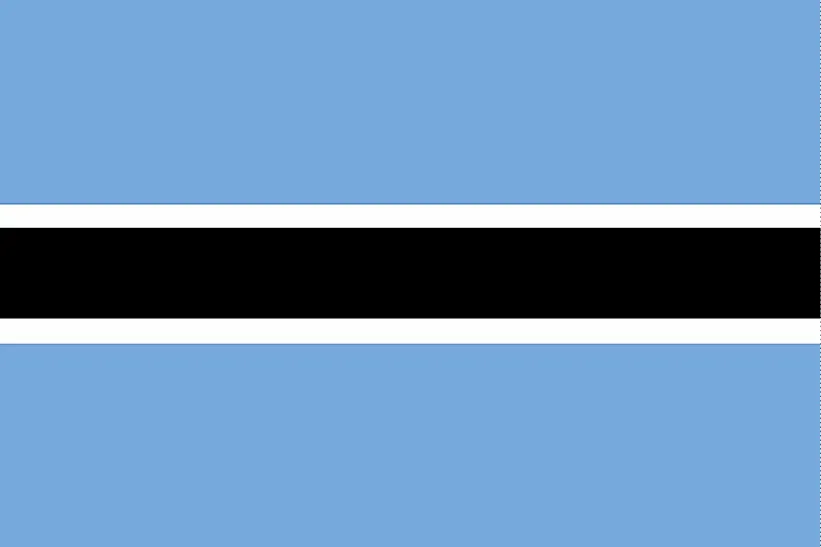
Botswana
| Continent | Africa |
| Capital | Gaborone |
| Population | 2,209,208 |
| GDP | $35.90 Billion |
| GDP per Capita | $16,900 |
| Dialing Code | +267 |
| ISO Code (2-letter) | BW |
| ISO Code (3-letter) | BWA |
Botswana Landscapes






About Botswana
Welcome to Botswana, a landlocked nation in Southern Africa that has transformed itself from one of the world’s poorest countries at independence to an upper-middle-income economy. With a population of approximately 2.3 million people spread across 581,730 square kilometers, Botswana has earned recognition for its stable democracy, sound economic management, and commitment to conservation.
Geographic Features and Natural Beauty
Botswana’s geography is dominated by the Kalahari Desert, which covers up to 70% of the country’s land surface. Despite its desert classification, the Kalahari supports a diverse ecosystem of wildlife and vegetation, particularly during the rainy season when parts of the desert transform into lush grasslands.
The Okavango Delta, a UNESCO World Heritage site, is one of Africa’s most extraordinary natural wonders. This inland river delta creates a unique wetland system that supports abundant wildlife in the midst of the desert. During the annual flood season, the delta swells to three times its permanent size, attracting thousands of animals.
The Chobe National Park, famous for having one of Africa’s largest elephant populations, showcases the country’s commitment to wildlife conservation. The Makgadikgadi Pans, one of the world’s largest salt flats, creates an otherworldly landscape that transforms dramatically between wet and dry seasons.
Cultural Heritage and Traditions
Botswana’s culture is deeply rooted in traditions of the Tswana people, though the country is home to various ethnic groups including the San (Bushmen), whose ancient way of life represents one of the oldest cultures in Africa. The national principles of “Democracy, Development, Self-reliance, and Unity” reflect traditional values while embracing modern progress.
Traditional arts and crafts include basket weaving, particularly the intricate designs of the Bayei people, and wood carving. The country’s musical traditions feature unique instruments like the segaba (a type of violin) and praise poetry known as maboko.
Botswana’s traditional governance system, based on the kgotla (community council), continues to play an important role in local administration and dispute resolution, demonstrating how traditional institutions can complement modern democracy.
Historical Journey
Botswana’s history spans from early human habitation by the San people through the formation of the Tswana states to British protection as the Bechuanaland Protectorate. The country gained independence in 1966 under the leadership of Sir Seretse Khama, who established a strong democratic tradition.
Unlike many African nations, Botswana maintained stability and democratic governance after independence, using its mineral wealth, particularly diamonds, to fund development while avoiding the “resource curse” that has affected many other resource-rich countries.
Modern Economic Landscape
Today’s Botswana has one of Africa’s fastest-growing economies, primarily driven by diamond mining, tourism, and cattle farming. The country’s prudent management of its mineral resources has enabled significant investment in infrastructure, education, and healthcare.
The tourism sector, focused on high-value, low-impact experiences, contributes significantly to the economy while supporting conservation efforts. The government continues to pursue economic diversification, promoting sectors such as manufacturing and financial services.
International Relations and Global Position
Botswana maintains a strong position in international affairs, known for its stable democracy and sound economic management. The country plays an active role in regional organizations and is respected for its stance against corruption and commitment to good governance.
Did You Know?
• Botswana has the world’s largest population of African elephants, with over 130,000 individuals?
• The country has maintained one of Africa’s longest continuous democratic systems since independence?
• Botswana’s Jwaneng Mine is the richest diamond mine in the world by value?
• The Okavango Delta is the world’s largest inland river delta, visible from space?
Conclusion
Botswana stands as a model of African success, demonstrating how good governance, sound resource management, and commitment to conservation can create sustainable development. From its pristine wilderness areas to its modern cities, from its traditional values to its progressive policies, Botswana continues to balance development with preservation. As it faces challenges including climate change and economic diversification, Botswana remains committed to its path of sustainable growth and environmental stewardship.